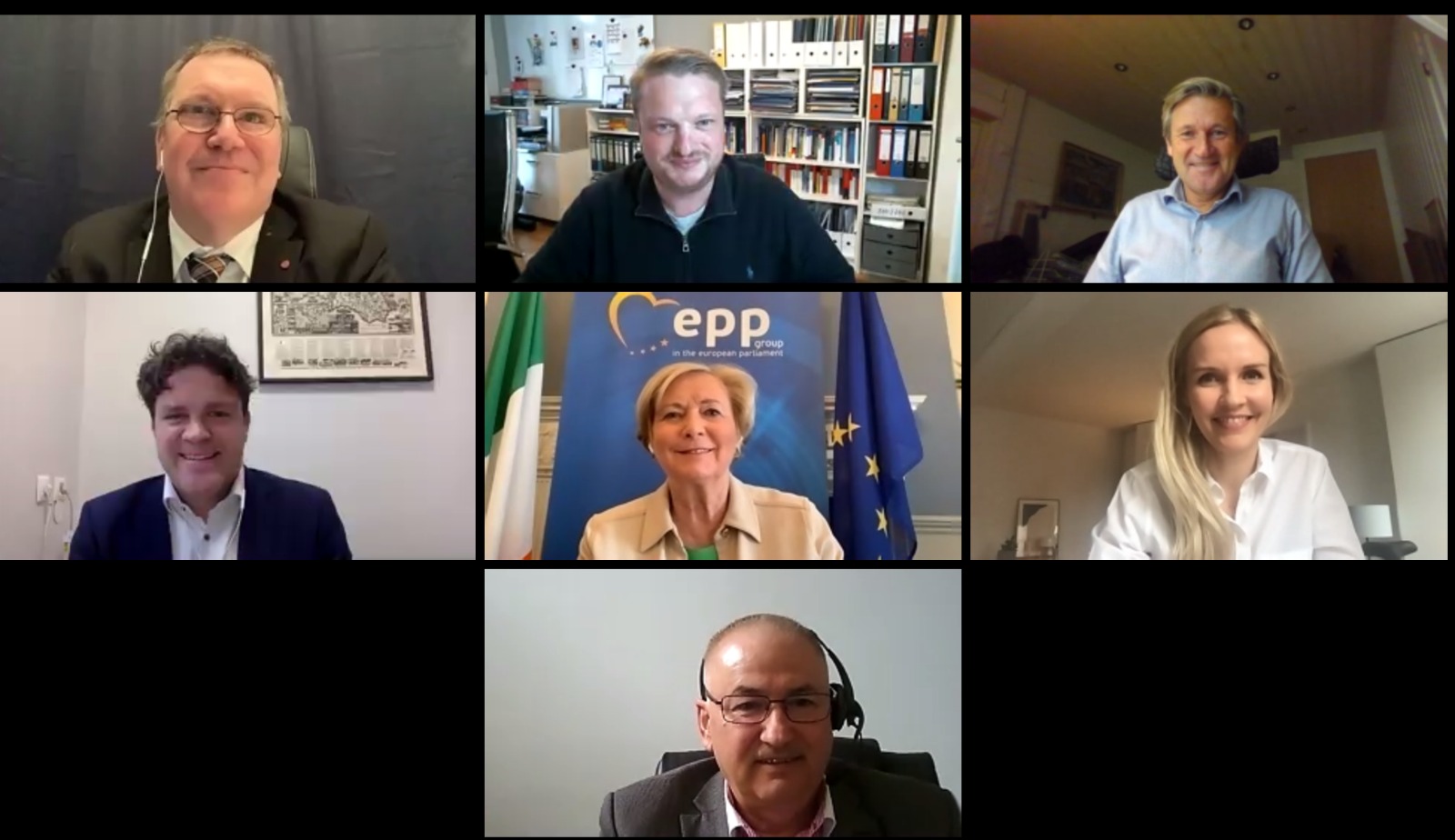How Can Governments & Platforms Work Together To Tame Societal & Economic Effects of the Virus & Be More Resilient & Shock Proof In the Future?

The Covid-19 crisis has reminded us all that access to reliable, detailed and timely information from national governments and European Institutions is crucial for both entrepreneurs and citizens alike. There is no longer a separate digital and analog dimension of Europe. Digital tools are at the heart of every sector, every organization’s operations strengthening their resilience in times of unprecedented emergencies. In this interconnected digital landscape, platforms play an important role and, therefore, have special responsibilities.
Moderated by Horst Heitz, Chair European Steering Board, the Virtual Meeting saw high-level speakers such as: Erik Bergkvist MEP, Member of REGI & ITRE Committees, Board member SME Connect; Florian Hartleb, Expert on E-Government affairs, Author and Lecturer; Krasimir Simonski, Deputy Chairperson to the State e-Government Agency (SEGA) in Bulgaria; Aura Salla from the Head Brussels Office; Svend Leirvaag, Vice-president Industry Affairs, Amadeus IT group and Frances Fitzgerald MEP, Member of ECON & FEMM Committees.
In his comprehensive introduction Erik Bergkvist stated that at the moment SME’s are in a much more difficult situation than larger companies because the buffers are much smaller and the resilience is usually also much smaller. These small companies don’t have the possibility to build networks, to have the overview of what’s happening in emerging markets and supply chains and how to find those new supply chains, when the ones they are having are getting broken, etc. He believes that this is exactly the place where digital platforms can be used to connect SME’s with governments and credible sources of information, which would solve the problems mentioned.
Continuing the discussion, Florian Hartleb speaks about the growing problem of misinformation in the media which causes a political discourse. Florian thinks that what we need is a close cooperation between governments and platforms and support of independent, fast fact-checking organizations, to build the trust. For example, in Germany people are trusting the social media, but they are not trusting the state, so this problem has to be dealt with. He also points out that it’s important to invest in digitalizing the education and brings as ex. a perfectly digitalized education system in Estonia.
On the other hand, Krasimir Simonski stated the positive impact that the pandemic had of switching quickly and forcing to go digital, something that the country was trying for a long period of time, now it happened in a week. Because of this, there was actually a lot of room for SME’s that were in the digital sphere to help the government, companies and schools to adapt and help to work with new technology; online sales were also going up rapidly. Krasimir believes that we should utilize this wave and adopting to the new conditions rather than try to “survive” this period because these conditions are going to continue. His key points: Government should behave more like platforms do in terms of technologies; It would be good for all the portals to be as intuitive and easy to navigate as the developed and advanced platforms out there; Platforms should help the government to serve their constituencies; Pandemic added a lot of energy to the digitalization process, so we should seize the moment; People need to gain the competences and skills to take decision in an online environment, especially for the businesses;
Aura Salla reminds how important it is to have access to reliable, detailed and really timely information from our governments both for citizens and businesses. A good way to do this is through social media, as she takes for example how Facebook works with government to reach this goal and keep the people informed. Since this is also an economic crisis, she also states that it’s key to connect SME’s with governments to support these businesses to survive and have access to important information (loans, tax relief programs, etc). In conclusion, she believes that the smart use of data and digital tools can speed up the reopening of the economy in the EU. Boosting digital capacity would allow Europe to fight future crisis and the economic turmoil that comes along more effectively.
Svend Leirvaag brings up the point that to recover, we need mobility. He thinks that the economic impact we see is the impact of restrictions on mobility and that the most important question is “how can we ensure that we use technology to facilitate the recovery of mobility. One way to do this is to restore traveler confidence: provide the right information so that one is confident and secure to make the trip.
Concluding, Frances Fitzgerald believes that working from home, cooperation with the platforms, building trust with the platforms, using the platforms, small businesses working in the platforms has to be the main focus now. This is the unprecedented necessity to build bridges and have those relationships and for the government to take every action it can to support that. But at the same time being this is directly interconnected with the health aspect of the pandemic, because if we can’t deal with the pandemic, our economies won’t grow.